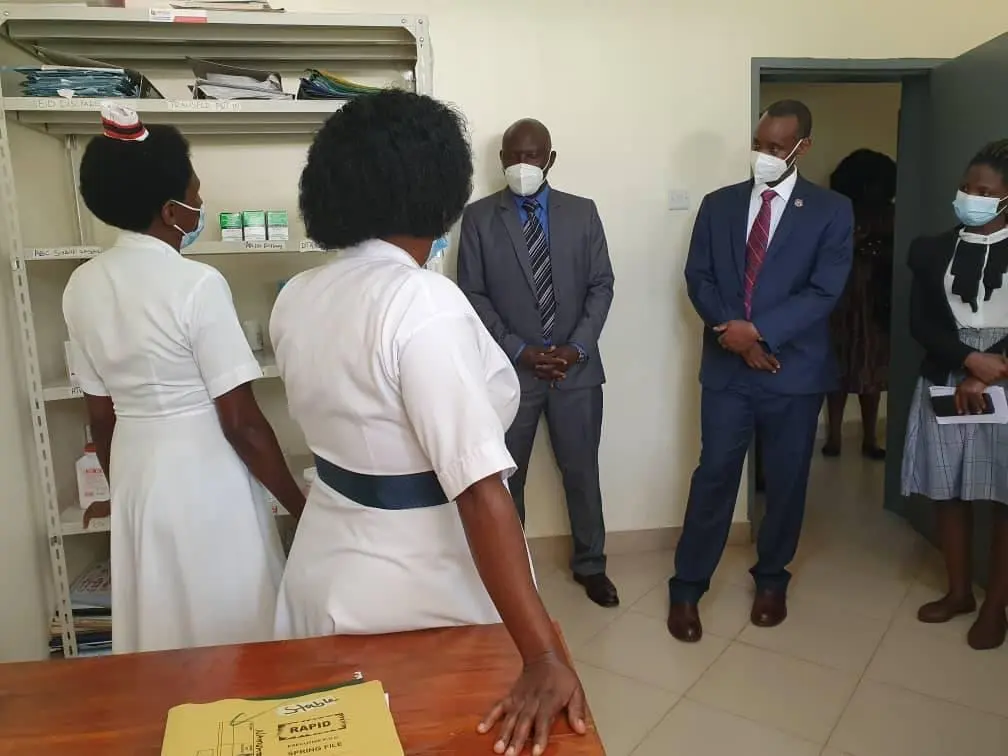By Jimmy Siyasa
Imagine an expectant mother, filled with anticipation for her newborn, yet gripped by fear—not knowing if she’ll survive childbirth due to maternal health challenges and systemic barriers. Beyond imagination is the stark reality confronting countless Ugandan pregnant and parenting women every day.
Thus, the news of the establishment of the Uganda Christian University (UCU)-Kagando College sent a strong wave of hope and excitement both within the UCU fraternity and the Kasese, western region, community.
Here’s more of why:
- According to the Uganda Ministry of Health Annual Health Sector Report for 2023/2024, the Institutional Maternal Mortality Ratio (IMMR) across 20 general hospitals with the highest rates reached a staggering 9,806 deaths in 2024. To put that in perspective, the USA-based Center for Disease Control (CDC)defines maternal mortality as “the number of maternal deaths per 100,000 live births.” At Kagando General Hospital in Kasese District —a region with nearly 850,000 residents—381 maternal deaths per 100,000 live births were recorded last year. That’s nearly 400 out of every 100,000 women who gave birth in Kasese, never getting the chance to hold their babies.
- Compare this to the United States, where, with a population of 340.1 million, only 817 women died of maternal causes in 2024, per CDC data. Kasese’s population is just shy of South Dakota’s 886,667, yet its maternal death toll is disproportionately high—a sobering statistic that demands attention. Remarkably, Kagando General Hospital’s IMMR was among the ‘lowest’ on Uganda’s list of 20 worst-affected hospitals, hinting at the dire state of maternal care nationwide.
- Leading drivers of maternal death in Uganda are obstetric hemorrhage (excessive bleeding before, during and after child birth), infections, delays in seeking care, and a critical skills gap among healthcare workers. The Uganda National Institute of Public Health identifies this skills deficit—particularly in emergency obstetric and newborn care—as an “avoidable” factor driving maternal deaths. The urgent need to train both current and future healthcare professionals is clear. No mother or child should die due to ignorance or negligence.
Earlier this year, the National Council for Higher Education (NCHE) greenlit the transformation of Kagando Training Institution into a Constituent College of UCU following a rigorous four-year review.
The final assessment, conducted in July 2024, saw Vice Chancellor Assoc. Prof. Aaron Mushengyezi and UCU’s Cabinet showcase the college’s readiness—evaluating staff qualifications, library resources, classrooms, laboratories and management structure, among other elements. UCU’s Academic Affairs division worked tirelessly to meet every regulatory benchmark, leading to the approval later from the NCHE dated February 7, 2025.

Set to launch operations in 2025 with an initial capacity of 540 students, UCU-KUC will offer three vital programs: Bachelor of Nursing Science, Bachelor of Midwifery Science and Bachelor of Medical Laboratory Science. On April 5, 2025, the UCU Vice Chancellor and other top management staff were scheduled to officially commission the college at a ceremony in Kasese, bringing UCU’s total number of constituent colleges to three—Mbale, Kabale and now Kagando.
For Kasese, a densely populated district in western Uganda, this is more than an academic milestone—it’s a lifeline. Expectant mothers can now look forward to safer deliveries and the joy of nurturing their newborns, thanks to a new generation of skilled healthcare providers that will in no time emerge from UCU KUC.
UCU Kagando College isn’t just a training ground; it’s a beacon of hope tackling one of Uganda’s most pressing health crises. UCU Management’s investment in this initiative means equipping healthcare workers to save lives, reducing maternal mortality and strengthening a community of nearly a million people.
As such, it is an uphill, yet worthy and doable task, given the necessary support and collaborations that may further support the establishment of state-of-the-art labs, scholarships for aspiring midwives and nurses, and cutting-edge research to address local health challenges.


